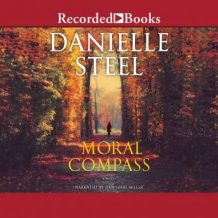The Witches of Lublin Audiobook
The Witches of Lublin Audiobook
- A Full Cast
- SueMedia Productions
- 2011-09-13
- 0 h 59 min
Summary:
They state the Devil came to Lublin, Poland once, in the first spring of the entire year 1797 of the Christian calendar. For the Jews of Lublin, it was the month of Nisan in the entire year 5557.
There are two calendars, because there are two Lublins: the Lublin of the Polish Catholics, who fear just God, the Devil, and their local nobleman, Count Sobieski and the Lublin of the Jews, who fear everyone and everything, and with justification. For despite having lived in Poland for hundreds of years, the Jews live about The Witches of Lublin every day in Lublin just by the grace of the Count’s uncertain tolerance.
In The Witches of Lublin, as the Jewish holiday of Passover nears, with it hangs the risk of violence. Assault, which the Jewish community has seen before, in Lublin, and all over Eastern Europe. All of a sudden, come military with orders of eviction, followed by a gang of upset peasants with torches – a pogrom – to pillage, rape or eliminate any Jews who doesn’t obtain out fast more than enough. The Jews of Poland have lots to worry about in 1797.
Graf Sobieski rules all of Lublin, but within Lublin’s Jewish community, there is a cultural hierarchy – perhaps successful businessmen like the butcher (and the butcher’s wife) wield one of the most power, but it is the Rabbi who is the community’s religious leader.
A poor, unmarried female with barely two groshn to rub together,
two unmarried daughters, and an orphaned granddaughter to support, would barely cling to underneath rung from the social ladder. Unless that female had been Rivke. Widowed, poor and battling, yes, but Rivke is certainly no ordinary female.
Daughter of the fantastic Jewish mystic Reb Leyb Sora, Rivke is sister to the rabbi’s wife, a weaver of ribbons, a Talmud scholar, and an extraordinary musician. Rivke provides struggled to keep up her little family members beneath the most trying situations.
It really is her insistence that her daughters Leah and Sorele play music (aswell seeing that the men – better, in fact) and that her granddaughter Sofiasing leading to the family’s downfall. The women’s abilities, intellect and spirituality just raise dubious whispers in the Jewish community.
However when the women’s popularity as the best klezmer music artists in Poland spreads beyond the ghetto’s boundaries and the Count instructions Rivke, her daughters and granddaughter perform in his son, Bogdan’s, name time special event, Rivke is confronted with an out of the question choice: Do seeing that he commands and risk scandal, or refuse and risk the Count’s revenge on the complete Jewish community – a pogrom.
No one could have anticipated the tragic love that heedlessly sows the seeds of devastation for Rivke and her daughters, that exiles Sophia from her people which opens the doorways of heaven. But there is more towards the legacy of Reb Leyb Sora than even those in the Jewish community could possess anticipated, so that as these witches expose themselves to be holy ladies, they leave in it a legend that cannot pass away.
The Witches of Lublin is dependant on true and small known history of klezmer musicians in Eastern Europe. Co-writer Yale Strom’s analysis uncovered the facts that there were women klezmer musicians, and that when klezmers would play for gentile nobility, their praise could sometimes end up being beatings, death as well as kidnappings. This history shaped the springboard because of this function of fiction by Strom, Schwartz and Kushner predicated on Jewish women’s lives in 18th Hundred years Europe, klezmer music and feminist background, with a wholesome dose of marvelous realism tossed in.






